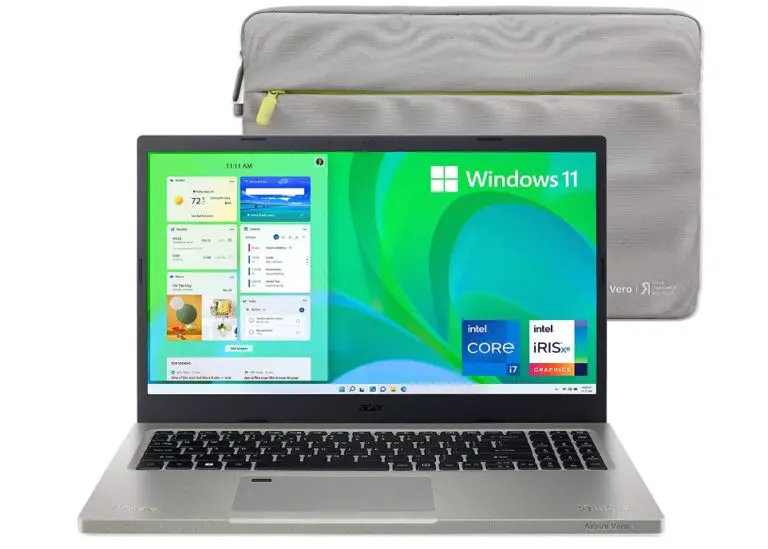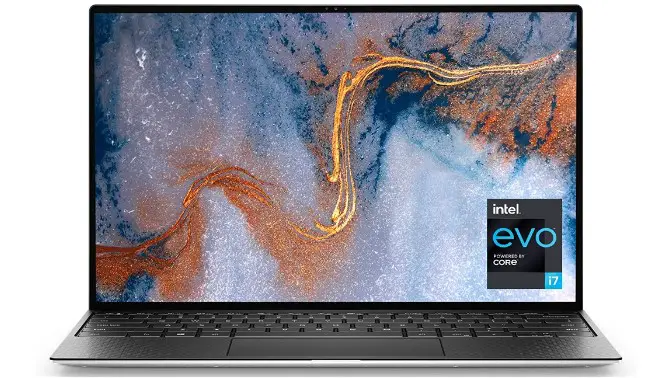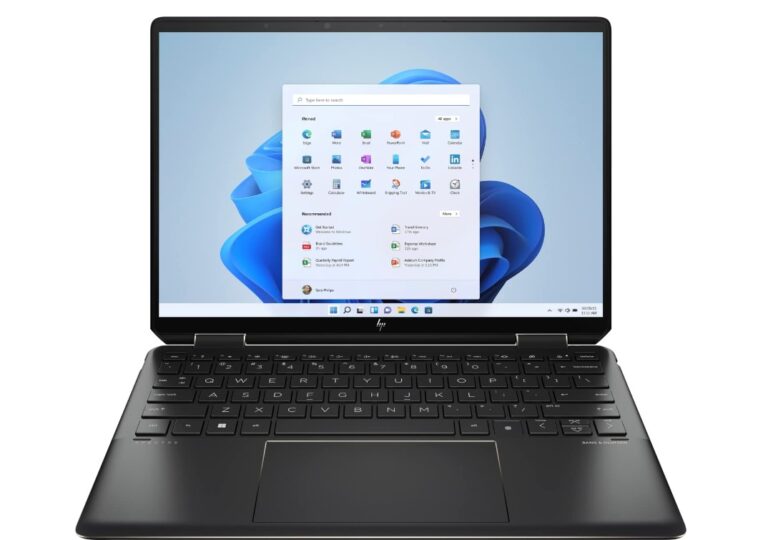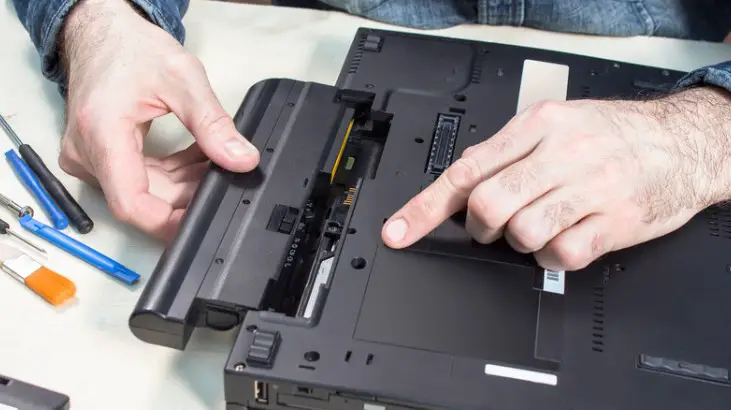The Best Laptops For College Students On A Budget
As the world becomes more digital, college students are increasingly relying on laptops to complete their coursework. However, not all students have the luxury of splurging on top-of-the-line devices. This is where budget-friendly laptops come in handy- providing a solution for cash-strapped individuals who need reliable and functional machines without breaking the bank.
Finding affordable yet high-quality laptops can be an overwhelming task. With so many options available in today’s market, it can be challenging to determine which device will meet your needs while still being within your budget range.
In this article, we aim to simplify that process by presenting a selection of the best laptops for college students on a budget. Whether you’re looking for something lightweight or powerful enough to handle heavy-duty tasks, our recommendations cater to various preferences and requirements.
So sit back, relax, and let us guide you through some of the most exceptional laptop deals currently available.
Importance Of A Good Laptop For College Students
Modern education has undoubtedly been shaped by technology, with laptops being a crucial tool for college students. The Importance of technology in modern education cannot be overstated, as it allows students to access information and communicate efficiently.
Laptops have become an essential item on the list of things needed for college. The impact of laptops on student productivity is significant. Students can use their laptops to take notes during lectures and access educational resources online. In addition, they can work on assignments from anywhere at any time, making it easier to meet deadlines. This increased flexibility also means that students can balance academic work and other commitments more effectively.
In conclusion, having a good laptop is vital for college students because it enhances productivity and facilitates learning. With the increasing reliance on digital tools in today’s society, investing in a reliable laptop is an investment in one’s future success. Choosing the best laptop for college students on a budget requires research and careful consideration but will ultimately pay dividends throughout one’s academic career and beyond.
Factors To Consider When Choosing A Budget Laptop
When it comes to choosing a budget laptop for college students, there are several factors that need consideration. One of the most important is laptop durability. College students tend to move around with their laptops from one class to another and also use them in various environments. Therefore, it’s essential to choose a durable laptop that can withstand wear and tear.
Another factor to consider when selecting a budget laptop is brand reliability. Choosing a reputable brand will not only ensure quality but also guarantees you access to excellent customer support if anything goes wrong. It’s advisable to research brands’ track records before making your final decision.
Additionally, storage capacity should be taken into account when choosing a budget laptop for college students. Although cloud storage has become popular over time, having sufficient onboard storage space allows flexibility on how files are stored or accessed offline.
Markdown List:
- Processor speed
- Battery life
- Screen size
- Weight
- RAM
By taking these factors into consideration, college students can make an informed decision about what type of budget laptop best suits their needs.
Purchasing a reliable and durable machine gives peace of mind knowing that it won’t break down quickly during critical times like exams or projects without compromising performance capabilities.
Processor Speed And Performance
After considering the various factors that go into choosing a budget laptop, it’s important to take a closer look at processor speed and performance. This is because the processor is essentially the brain of your computer, responsible for running all programs and applications.
One key consideration when evaluating processor speed is clock speed, measured in GHz (gigahertz). Generally speaking, higher clock speeds mean better performance. However, it’s also worth noting that there are other factors that can impact overall performance such as cache size and number of cores.
In addition to traditional processors, some laptops may come with overclocking options for boosting performance even further. However, it’s important to keep thermal management techniques in mind when using these features to avoid overheating and potential damage to your device.
| Processor | Clock Speed | Cores |
|---|---|---|
| Intel Core i3-10110U | 2.1 GHz | 2 |
| AMD Ryzen 5 3500U | 2.1 GHz – 3.7 GHz with boost | 4 |
| Intel Pentium Silver N5000 | 1.1 GHz – 2.7 GHz with burst | 4 |
When comparing different laptops based on their processors, this table provides a quick overview of some popular options within the budget range. The Intel Core i3 offers solid performance for everyday tasks while the AMD Ryzen has more power for heavier workloads like video editing or gaming. The Intel Pentium Silver is an affordable option best suited for basic use cases like web browsing and document editing.
Overall, when selecting a budget laptop consider both clock speed and additional features like overclocking capabilities while keeping thermal management in mind to ensure longevity of your device over time.
Ram And Storage Capacity
When it comes to choosing a laptop, RAM and storage capacity are two essential factors that every college student should consider. The amount of RAM will determine how smoothly your programs run, while the storage capacity is crucial for storing all your files, documents, and media. For students on a budget, it’s important to strike a balance between these two features.
Most laptops come with 4GB or 8GB of RAM, which is sufficient for basic tasks like browsing the web, typing up papers, and streaming videos. However, if you plan to use resource-intensive software such as video editing tools or gaming applications, then you’ll need at least 16GB of RAM. It’s worth noting that some laptops have upgradeable memory slots, so you can always add more RAM in the future if necessary.
In addition to considering the amount of RAM in a laptop, it’s also important to think about its storage capacity. Most budget-friendly laptops offer around 256GB of internal SSD storage space but this may not be enough for everyone. If you intend to store large multimedia files like movies and music libraries or install demanding software packages then upgrading options such as adding an external hard drive could be considered instead of purchasing another device altogether.
Durability is also key when thinking about long-term maintenance cost; investing in a sturdy machine can reduce repair costs down the line ensuring continued usability throughout one’s academic career. Ultimately finding the right balance between adequate RAM and storage capacity depends on individual needs and usage patterns; however keeping durability and maintenance into account ensures that investment goes beyond just good specs but spans across years without being bogged down by frequent repairs or replacements costing time money and effort otherwise spent elsewhere towards their academic journey.
Battery Life
As important as RAM and storage capacity are for a college student’s laptop, the longevity of battery life is just as significant.
The hectic routine of a student can often lead to long hours of usage without access to charging ports. Therefore, it is essential to consider laptops with extended battery lives that can last all day.
The best laptops for college students on a budget offer optimized charging times that ensure minimal downtime between classes or study sessions.
Some models come equipped with fast-charging capabilities that allow you to charge your device quickly during breaks, ensuring uninterrupted use throughout the day.
When searching for a laptop with optimal battery performance, it’s crucial to look beyond advertised specs and assess real-world usage scenarios through reviews from reputable sources.
Doing so ensures that you get accurate information about how well a particular model performs in terms of its power consumption, thereby making an informed decision when selecting the ideal laptop that suits your needs.
Display Quality And Size
Display quality and size are important factors to consider when purchasing a laptop for college. Students spend hours in front of their laptops, whether it’s for taking notes or completing assignments. A good display with high resolution ensures that the text is sharp and easy on the eyes, while an appropriate screen size provides ample space for multitasking.
One advantage of touchscreens is that they allow users to interact directly with their device without using a mouse or trackpad. This can be particularly useful for artists and designers who use creative software such as Photoshop or Illustrator. However, touchscreens may not be necessary for everyone and can increase the cost of the laptop.
When it comes to displays, there are two types of finishes: glossy and matte screens. Glossy screens have a reflective coating that makes colors appear more vibrant but also causes glare under bright light conditions. On the other hand, matte screens have an anti-glare coating that reduces eye strain but may make colors look less vivid. Ultimately, choosing between these two finishes depends on personal preference and usage habits.
In summary, selecting a laptop with a good display quality and size is crucial for students’ productivity and overall experience. Touchscreens offer advantages for certain tasks but come at an additional cost, whereas choosing between glossy vs matte screens is a matter of personal preference. It’s essential to carefully assess one’s needs before making a purchase decision to ensure optimal performance during college years.
Portability And Weight
When it comes to choosing a laptop for college, portability is an important factor to consider. A compact design can make carrying your laptop around campus much easier, especially if you have long walks between classes or need to take the bus. Lightweight laptops are also more comfortable to use for extended periods, such as when studying in the library or working on assignments at home.
Another aspect of portability that should not be overlooked is screen resolution. While higher resolutions may be attractive from an aesthetic standpoint, they can often add weight and bulk to a laptop. For students who prioritize portability over display quality, opting for a lower resolution display could be a wise choice.
Durability is another consideration when selecting a portable laptop. College life can be unpredictable, with laptops being jostled around in backpacks and subjected to accidental drops. Investing in a sturdy device that can withstand some wear and tear will save you money on repairs or replacements down the line. Of course, price point must also come into play – finding a balance between affordability and durability is key.
- Consider purchasing a laptop sleeve or case to protect your investment while traveling.
- Look for laptops with solid state drives (SSDs) instead of traditional hard disk drives (HDDs) – SSDs tend to be more durable due to having no moving parts.
- Think about investing in accidental damage protection plans offered by manufacturers or third-party providers.
- Don’t forget to compare prices across different brands and models before making your final decision.
As you navigate through the process of buying a laptop that fits within your budget as a college student, remember that sacrificing portability might not always be worth it just because it has better features like high-resolution displays; sometimes having something lightweight can help reduce stress levels during those study sessions. When considering options, think about what’s most important: durability vs cost-effectiveness? Ultimately though there isn’t one-size-fits-all solution in this case, so take the time to weigh your options and make a decision that works best for you.
Keyboard And Touchpad
Like the steering wheel of a car, the keyboard and touchpad are essential to navigating through a laptop. A good typing experience is not only comfortable but also contributes to productivity. When it comes to keyboards, you want one that’s responsive and tactile with keys that offer enough travel distance for satisfying clicks. The best laptops provide excellent feedback while still being quiet enough not to disturb others around.
In addition to the traditional keyboard, most laptops come equipped with a touchpad or trackpad as an alternative input method. Modern laptops have improved gesture support built into their touchpads which allow users to perform various actions such as scrolling, zooming in/out, swiping between apps, and more without needing additional hardware like a mouse.
Although some people prefer using mice over touchpads, many college students find them convenient when they’re on-the-go.
When choosing a laptop for college studies, it’s important to consider both the keyboard and touchpad quality since these features impact your overall user experience. A poor-quality keyboard can make typing frustrating and slow down work progress while an unreliable touchpad will lead to frustration when trying to navigate through applications quickly.
Therefore, investing in a laptop that offers both high-quality components will undoubtedly pay off during long study sessions or group projects where time is of the essence.
Audio And Webcam Quality
When it comes to attending online classes or video conferencing with peers, having good audio and webcam quality is essential for college students. Low light performance is a crucial factor when choosing a laptop with an integrated webcam. A camera that performs well in low light conditions can help ensure your face is visible during late-night study sessions or group calls.
In addition to the camera, microphone quality is another important aspect of audio clarity during virtual meetings. The microphone should be able to pick up sound without producing too much background noise. Many laptops come equipped with noise-canceling technology built into their microphones which helps eliminate unwanted sounds such as keyboard clicks or room echoes.
While some laptops have integrated webcams, others may require you to purchase an external one separately. Integrated vs external webcams can differ in terms of resolution and portability. External webcams are often more versatile since they can be moved around and positioned according to personal preference. However, they may also require additional setup time before use compared to integrated ones.
Consider purchasing headphones with a built-in microphone if you plan on frequently participating in virtual meetings.
Look for laptops with dual-array microphones for better audio quality.
Check reviews or specifications for information on the type of webcam (integrated vs external) and its resolution.
The quality of audio and webcam performance on a laptop plays an integral role in ensuring seamless communication between classmates and professors. When selecting a budget-friendly laptop, consider factors like low light performance, microphone quality, integrated vs external webcams, and noise cancellation capabilities. By doing so, you’ll be able to make the most out of your virtual learning experience without sacrificing any critical features necessary for success.
Connectivity Options
In today’s digital age, wireless connectivity has become a necessity for college students. The ability to connect to the internet and access online resources is crucial for academic success. Laptops with built-in Wi-Fi capabilities are essential in this regard as they provide easy access to the internet without having to worry about cables or ports.
However, it is also important to consider Ethernet options when selecting a laptop. While most modern laptops come equipped with wireless connectivity, some older buildings on campus may not have reliable Wi-Fi connections. In such cases, an Ethernet port can be used to establish a wired connection between the laptop and the network. This provides a more stable internet connection that won’t be affected by interference from other devices.
To better understand the different connectivity options available on budget-friendly laptops, refer to the table below:
| Connectivity Option | Description |
|---|---|
| Wi-Fi 6 (802.11ax) | Latest standard of wireless networking offering high-speed data transfer rates and low latency |
| Bluetooth 5.0 | Technology allowing wireless communication between devices within short distances |
| Gigabit Ethernet Port | Wired networking technology providing fast data transfer speeds |
Overall, choosing a laptop with both wireless and Ethernet connectivity options ensures maximum flexibility in accessing the internet no matter where you are on campus or at home. With these features readily available, college students can stay connected while focusing on their studies without any interruptions or setbacks.
Operating System
When it comes to choosing an operating system (OS) for your laptop, there are a few options available. The most popular choices include Windows, macOS, and Linux. Each OS has its own pros and cons that should be considered before making a decision.
Windows is the go-to choice for many people due to its widespread availability and compatibility with various programs. However, it can come with a hefty price tag if you opt for the latest version of the software.
On the other hand, macOS offers an intuitive user interface and seamless integration with Apple devices but is only compatible with Macbooks which tend to be more expensive than other laptops.
Lastly, Linux is an open-source option that is free to use and highly customizable but may have limited support for certain applications.
When comparing OS options for college students on budget, it’s important to consider the benefits of open source software. Open source refers to software that anyone can view, modify or distribute without any restrictions from copyright holders. This means that users can access high-quality software without paying license fees or relying on proprietary technology. Some notable examples of open source software include LibreOffice, GIMP, and Firefox among others.
- Access to free software: With open-source software, students do not have to worry about purchasing expensive licenses as they provide free access.
- High quality: Many open-source tools offer comparable features when compared to commercial solutions.
- Customizable: Open-source projects allow users who know how to code tinker around in order to get desired functionality.
- Security: OpenSource community being large means better security as bugs are identified quickly by multiple observers.
- Community Support – There’s usually active communities surrounding these types of projects meaning support from other individuals going through similar situations.
Choosing the right operating system for your needs requires careful consideration of factors such as cost, compatibility with specific programs or hardware requirements as well as personal preferences when it comes down to User Interface design etcetera. For college students on a budget, open-source software may be the way to go as it offers quality and customization without breaking the bank.
Warranty And Customer Support
Extended warranty and technical support are two critical factors to consider when purchasing a laptop, especially for college students on a budget.
Most laptops come with a standard one-year warranty that covers hardware defects, but an extended warranty can offer peace of mind by providing coverage for accidental damage or other issues beyond the manufacturer’s control. This extra protection is particularly beneficial for college students who rely heavily on their devices for coursework.
In addition to considering the length of the warranty, it’s essential to evaluate the quality of technical support offered by the manufacturer. A helpful and responsive customer service team can make all the difference when you’re facing tech problems or need assistance setting up your device.
Look for companies that offer 24/7 phone or chat support, as well as online resources like troubleshooting guides or forums where you can ask questions and get help from other users.
When shopping for a laptop, don’t overlook the importance of extended warranties and strong technical support. Investing in these areas can save you time and money down the road if you encounter any problems with your device. Take some time to research different manufacturers’ policies before making a purchase so that you feel confident in your decision and have access to reliable support should you need it.
Top Budget Laptops For Everyday Use
When it comes to budget laptops, finding one that can handle everyday tasks without breaking the bank is a challenge. But fear not, as there are several great options available for college students on a tight budget.
First up is the Acer Aspire 5, which boasts impressive specs for its price point. This laptop features an AMD Ryzen 3 processor and Radeon Vega graphics, making it ideal for light gaming and photo editing in addition to word processing and web browsing. Plus, with upgradable RAM and storage options, this laptop can grow with you throughout your college career.
Another affordable option is the Lenovo IdeaPad 3, which offers solid performance for basic tasks like writing papers and streaming videos. Its Intel Core i3 processor provides snappy response times while its slim design makes it easy to carry around campus. And at under $400, this laptop leaves plenty of room in your budget for essential accessories like a protective case or upgraded headphones.
To get the most out of your budget laptop, proper maintenance is key. Make sure to regularly clean any dust from vents to prevent overheating and consider investing in a cooling pad if you plan on using your laptop for extended periods of time.
Additionally, keeping software updated and running regular virus scans will help prolong the lifespan of your device.
In today’s ever-connected world, having a reliable laptop is crucial for success in college. With these top budget options and proper maintenance tips in mind, you’ll be well on your way to academic excellence without sacrificing too much of your hard-earned cash.
Best Budget Laptops For Creative Work
When it comes to creative work, having a laptop with strong multimedia capabilities and graphic design software compatibility is crucial. As such, finding the best budget laptops for these purposes can be challenging but not impossible.
Here are three options that college students on a tight budget may want to consider.
- Acer Aspire 5: This sleek-looking laptop offers excellent value for its price point. It features an Intel Core i5 processor, 8GB of RAM, and a dedicated NVIDIA GeForce MX350 graphics card which makes it ideal for running graphic-intensive programs like Adobe Photoshop or Premiere Pro. Additionally, the Aspire 5 has a large Full HD IPS display that provides impressive color accuracy and wide viewing angles for better visual experiences.
- Lenovo IdeaPad Flex 5: The IdeaPad Flex 5 combines affordability with flexibility in terms of form factor. It’s a two-in-one device that can transform from a traditional clamshell laptop into a tablet mode or tent mode thanks to its 360-degree hinge mechanism. Its AMD Ryzen 7 CPU delivers reliable performance while its integrated AMD Radeon graphics run most graphic design software without any hiccups.
- HP Pavilion x360: Another versatile option is the HP Pavilion x360 which also doubles as both a laptop and tablet depending on your needs at any given time. Powered by Intel Core i3-1005G1 processor, this laptop offers good overall performance along with solid battery life that lasts up to eight hours under normal use conditions. Moreover, its Intel UHD Graphics provide decent support for basic photo editing tasks using tools like Paint or GIMP.
In summary, there are several affordable laptops available today that offer great multimedia capabilities and graphic design software compatibility despite their low prices. These include the Acer Aspire 5, Lenovo IdeaPad Flex 5, and HP Pavilion x360; all of which have unique features suitable for different types of users who need cost-effective devices capable of handling creative work.
Affordable Gaming Laptops For College Students
Are you a college student looking for an affordable gaming laptop that won’t break the bank? Look no further than our top picks for budget-friendly options with impressive gaming capabilities.
These laptops are perfect for students who want to enjoy their downtime with some immersive gameplay without sacrificing performance or quality. When it comes to gaming, having a dedicated graphics card is essential – and luckily, many budget laptops have this option available.
Some of the best graphics card options in this price range include NVIDIA’s GTX 1650 and AMD’s Radeon RX 560X. These cards offer reliable performance and smooth gameplay, making them ideal choices for casual gamers on a budget.
One standout option in this category is the Acer Nitro 5. This laptop offers solid specs at an unbeatable price point, including an NVIDIA GeForce GTX 1650 graphics card and an Intel Core i5 processor. But don’t let its affordability fool you – the Nitro 5 can handle even demanding games like Apex Legends and Fortnite with ease.
With its powerful hardware and sleek design, this laptop is sure to impress both your wallet and your friends.
Frequently Asked Questions
Can A College Student Get A Good Laptop For Under $300?
College students on a tight budget are often in search of laptops that offer good specs without breaking the bank.
While it’s possible to find laptops under $300, there may be some compromises when it comes to brand options and features.
Some popular brands that offer affordable laptops include Acer, HP, Dell, and Lenovo. However, these models may not have the latest processors or high-end graphics cards.
Nonetheless, even basic models can provide enough power for web browsing, document editing, and streaming videos.
When shopping for an affordable laptop, students should prioritize their needs and consider aspects such as battery life, storage capacity, screen resolution, and weight.
By doing so, they can find a laptop that suits their academic requirements and fits within their budget constraints.
Are Touchscreens Necessary For College Students?
When it comes to choosing a laptop for college, the debate over touchscreen versus traditional displays is ongoing.
While touchscreens offer an intuitive and interactive experience, they come with a higher price tag.
It ultimately depends on individual preferences and needs; for example, those studying graphic design or art may benefit from a touchscreen display.
However, for most students, a traditional display will suffice and save money in the long run.
The benefits of a non-touchscreen laptop include longer battery life and reduced glare.
Ultimately, whether or not a touchscreen is necessary for college students boils down to personal preference and budget constraints.
How Important Is A Dedicated Graphics Card For A Budget Laptop?
When it comes to budget laptops, the inclusion of a dedicated graphics card is a crucial factor for those looking to use their device for gaming or graphic design purposes.
While integrated graphics can handle basic tasks such as web browsing and word processing, they fall short when it comes to handling more demanding applications.
A dedicated graphics card provides greater performance and smoother visual effects, making gaming and designing much more enjoyable experiences.
However, not all budget laptops come equipped with this feature, so it’s important to do research before purchasing one specifically for these purposes.
For students who prioritize affordability over high-performance specs, there are still options available that provide decent graphics capabilities without breaking the bank.
Can A Budget Laptop Handle Video Editing Software?
When it comes to video editing on a budget laptop, the choice of software plays an important role.
Adobe Premiere Elements and CyberLink PowerDirector are among the best video editing software for budget laptops.
However, optimizing performance can be challenging as most budget laptops come with limited RAM and processing power.
Tips for improving performance include closing unnecessary applications, defragmenting the hard drive, upgrading RAM or even investing in an external GPU.
While a dedicated graphics card may not always be necessary, having one can significantly improve rendering times and overall performance.
Ultimately, finding the right balance between cost and functionality is crucial when choosing a budget laptop for video editing purposes.
What Is The Average Lifespan Of A Budget Laptop?
Laptops have become an essential tool for many students, particularly those on a tight budget. However, when it comes to durability and lifespan, these devices can vary greatly depending on the brand and model.
While some budget laptops may only last a few years before requiring costly upgrades or replacements, others can remain functional for upwards of five years with proper care and maintenance. Additionally, investing in affordable upgrades such as additional RAM or storage space can help extend the lifespan of a budget laptop even further.
Ultimately, the average lifespan of a budget laptop will depend on various factors including usage patterns and individual device quality.
Also read: What is the bet best Laptop for web development in 2023
Conclusion
As a college student, it can be challenging to find the perfect laptop that fits within your budget. However, with some research and careful consideration of your needs, you can find an affordable option that will meet all your academic requirements.
One interesting statistic is that according to a recent survey conducted by the National Retail Federation, 67% of college students plan on purchasing a new laptop before starting their studies. This shows how important having a reliable device is for academic success.
When searching for a budget laptop, there are several factors to consider such as processing power, RAM, storage capacity, and battery life. Touchscreens may not be necessary but could come in handy for note-taking purposes. A dedicated graphics card may not be required unless you plan on using resource-intensive software like video editing applications.
While cheaper laptops may have shorter lifespans compared to high-end devices, investing in proper maintenance and care could extend its usability.
Ultimately, finding the best laptop for college depends on individual preferences and requirements but rest assured that there are plenty of options available even if you’re working with a tight budget.







